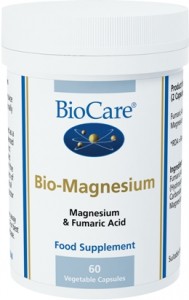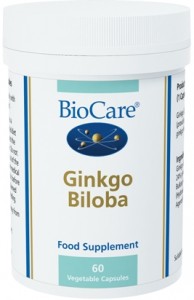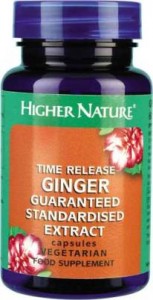If you’re lucky enough to have never had a migraine, it’s difficult to see how a “headache” can be so debilitating. But millions of sufferers struggle to live with the threat of a migraine hanging over their heads – so to speak. No one is sure exactly what causes migraines, and it’s quite possible that there is no single cause that applies to everyone. The good news is that we are not entirely in the dark, and there are still plenty of ways to prevent migraines.
Most sufferers know the common-sense precautions: avoid caffeine, alcohol and stress; get enough sleep; watch your diet and get out in the fresh air. However, sometimes the trigger can be hidden. For example: how’s your magnesium intake? It’s one of the many dietary minerals that most people don’t pay much attention to – but more than one study has linked migraines to low magnesium levels. One of them found that 80% of participants experienced less frequent migraines if they took just 200mg. However, other studies have suggested a dosage of400-600mg magnesium daily, and this is the amount we usually recommend.
It’s thought that magnesium helps to stop blood vessels from suddenly tightening. This rapid vascular constriction and expansion is believed to be the source of the symptoms of a migraine. Magnesium may also reduce the frequency of attacks by stabilising the cell membranes in your blood vessels.
Other supplements make up for deficiencies in vitamins, antioxidants, fatty acids (crucial for brain health) and amino acids. For example, riboflavin, also known as vitamin B2, can reduce the frequency of migraines by up to 50% when taken daily in 400mg doses. For the best results, we recommend combining riboflavin and magnesium with feverfew: a traditional herb with a two-thousand-year history of migraine relief.
Don’t expect immediate results
 Our usual recommendation is to combine magnesium 400-600mg per day, riboflavin (Vitamin B2) -400mg daily, and feverfew as per the dosage on the label, as the three nutrients have an excellent cumulative effect. In other words, taking all three together is over three times more effective than taking one on its own. One book currently found in many health food shops suggests that combining these three nutrients will give the vast majority of sufferers their lives back again.
Our usual recommendation is to combine magnesium 400-600mg per day, riboflavin (Vitamin B2) -400mg daily, and feverfew as per the dosage on the label, as the three nutrients have an excellent cumulative effect. In other words, taking all three together is over three times more effective than taking one on its own. One book currently found in many health food shops suggests that combining these three nutrients will give the vast majority of sufferers their lives back again.
Individual response times vary, but the studies have mostly been based on 3 month trial periods. We advise sufferers to regard their first 3 months using these nutrients as a trial period. If you find yourself getting far less severe and less frequent migraines, and we hope that you do, you can continue using them indefinitely.
Other natural solutions for migraines
 Usually the suggestions above work extremely well. But if they don’t, other herbs, like Ginkgo biloba, can help you reduce or manage your migraines, but you may need to take them for a couple of months before you notice an effect.
Usually the suggestions above work extremely well. But if they don’t, other herbs, like Ginkgo biloba, can help you reduce or manage your migraines, but you may need to take them for a couple of months before you notice an effect.
Co-enzyme Q10, or CoQ10, is an antioxidant that acts much like a vitamin. It supports energy production and your body produces it naturally, but as we age, we produce less and less. Studies show that sufferers of frequent migraines are often deficient in CoQ10, and supplementing with just 150mg a day could reduce migraine frequency by more than half.
If your migraines are infrequent but severe, you may be looking to control symptoms rather than decrease frequency. Migraine sufferers who supplemented with fatty acids, specifically omega-6 and omega-3, experienced shorter and less severe migraines along with a reduction in frequency and nausea.
Desperate for relief, many sufferers turn to drugs to control their symptoms, like methysergide – now no longer in use due to some pretty severe side effects – and propranolol, which ironically can cause nausea and trouble sleeping. The amino acid 5-Hydroxytryptophan has been shown to be just as effective as these two medicines, with the added bonus of not adding foreign chemicals to your body.
Ginger for migraines
 The drug of choice for many migraine sufferers is sumatriptan, but a recent Iranian study found that powdered ginger was just as effective at decreasing the severity of migraines without the dangerous side effects. 250mg of ginger powder can result in less severe migraines within just two hours of use, while avoiding the common side effects of sumatriptan, which include heartburn, dizziness and mild sedation.
The drug of choice for many migraine sufferers is sumatriptan, but a recent Iranian study found that powdered ginger was just as effective at decreasing the severity of migraines without the dangerous side effects. 250mg of ginger powder can result in less severe migraines within just two hours of use, while avoiding the common side effects of sumatriptan, which include heartburn, dizziness and mild sedation.
Final comments
Of course, no supplement can give you the best possible results if something deeper is wrong. If you experience migraines, try tracking your food and sleep, drink plenty of water and rule out any major illnesses. Give your body the best chance you can to let it heal.
Evans R W, Taylor F R. “Natural” or Alternative Medications for Migraine Prevention.Headache 2006; 46:1012-1018
Smith C B.The Role of Riboflavin in Migraine.Canadian Medical Association Journal 1946; 54: 589-591
Maizels, M., Blumenfeld, A., &Burchette, R. (2004). A combination of riboflavin, magnesium, and feverfew for migraine prophylaxis: a randomized trial. Headache: The Journal of Head and Face Pain, 44(9), 885-890.
Sandor P S, Di Clemente L, Coppola G, Saenger U, Fumal A, Magis D, et al. Efficacy of coenzyme Q10 in migraine prophylaxis: a randomized controlled trial. Neurology 2005;64:713-5.
Titus, F., Davalos, A., Alom, J., &Codina, A. (1986).5-hydroxytryptophan versus methysergide in the prophylaxis of migraine. European neurology, 25(5), 327-329.
Maghbooli M, Golipour F, Esfandabadi A, Yousefi M. Comparison between the efficacy of ginger and sumatriptan in the ablative treatment of the common migraine. Phytotherapy Res 2014;28:412-415

